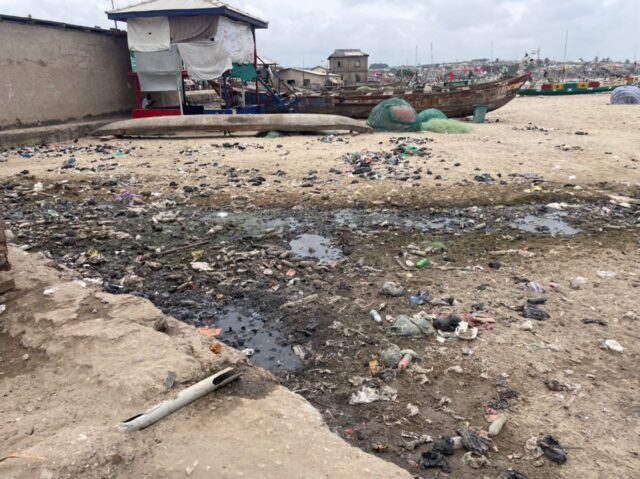The Penkye fishing community in Winneba, one of the busiest fishing hubs in the Central Region, is grappling with a growing sanitation crisis that threatens both public health and livelihoods.
A visit to the community reveals littered refuse, choked gutters, and poor drainage systems. Waste is often dumped indiscriminately, with some ending up in the sea, the very source of fish that sustains the local economy.
Residents describe the situation as unbearable. “When it rains, the whole place floods with dirty water. The smell alone makes it difficult to live here, and we fear for our children’s health,” said a fishmonger at Penkye.
Health experts warn that such conditions expose residents to cholera, diarrhoea, malaria, and other sanitation-related diseases. For a community that depends heavily on fishing and fish processing, the environmental impact is equally worrying. Polluted waters not only reduce fish catch but also affect the quality of fish sold to consumers.
Local authorities admit the sanitation problem is longstanding, citing a lack of resources, irregular waste collection, and low community participation as challenges. Calls have been made for the construction of proper waste disposal sites, public toilets, and regular clean-up exercises to restore hygiene in the area.
Community members believe education and enforcement are key. “If everyone takes responsibility and the authorities also do their part, Penkye can be a cleaner and healthier place,” a resident added.
The sanitation crisis at Penkye serves as a reminder that clean environments are central to healthy living and sustainable development. Addressing this issue will require a joint effort between government agencies, local leaders, and the residents themselves.
By: Esther Efua Forson – a student at the University of Education, Winneba (Department of Journalism and Media Studies)










